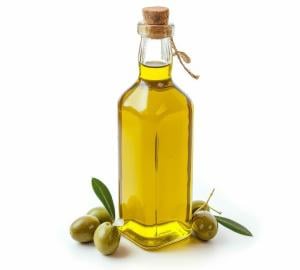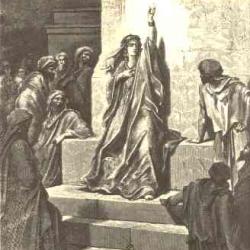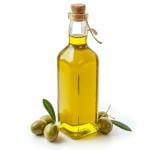Should Christians pray for the sick anointing them with oil to be healed? In James 5:14–15 the Scripture says:
“Are any among you sick? Let him call the elders of the church and let them pray for him, anointing him with oil in the name of the Lord. And the prayer of faith shall save the one who is ill and the Lord will raise him up, and if there might be sins he has committed, it will be forgiven him.”
This text prompts us to ask several questions. First, the Greek verb astheneō in the first clause of James 5:14 can mean either to be weak, or sick, or in need. Which one is it? Second, is this passage speaking about healing or salvation? After all, the verb to “save” here (sōzō) is the typical word for salvation, and the person here is forgiven of sins. Third, what is the purpose of anointing this person with oil? Finally, does the passage guarantee such a healing? Let’s try to answer these.
Does Weakness in this Passage Refer to Sickness?
It is true that sometimes the verb astheneō may refer to someone who is weak spiritually or weak in faith (Rom 14:1-2; 1 Thess 5:14). It could also refer to someone who is in poverty or socially disenfranchised (Acts 20:35; 1 Cor 9:22). But that is not what the word means in this context. The aspect of anointing this person with oil, along with the word for being ill in 5:15 (kamnō, to be ill, weary, or die), suggest that this passage is about sickness.
This is also the meaning of astheneō in the Gospels. It relates to those whom Jesus healed (Mark 6:56; Luke 4:40; John 4:46; 5:3, 7; 6:2; John 11:1–6), or those whom his disciples healed (Matt 10:8; Acts 9:37).
Is this Passage referring to Healing or Salvation?
The word sōzō can indeed mean to “save,” and James mentions the forgiveness of sins in 5:15. Plus the next verse speaks about believers confessing sins to one another (James 5:16). Interestingly in this verse, the outcome of confession and prayer is so that “you may be healed.” This is the standard verb for physical healing (iaomai: Matt 8:8; Luke 5:17; 14:4; Acts 5:16; etc.).
It also happens to be the case that sōzō can sometimes refer to physical healing, which is to save from disease (Mark 5:34; 10:52; Matt 9:22; Luke 17:19; Acts 4:9). In our present context, this nuance makes proper sense. Alternatively, there may be a double entendre here, with both physical healing and salvation from sins being meant. In either case, the term does not nullify physical restoration here.
What is the Purpose of Using Oil?
The only other case in the New Testament mentioning an anointing with oil to heal takes place with the disciples when sent out by Jesus (Mark 6:13). There are at least two prominent explanations for such an anointing.
-
A Medicinal Purpose
The ancient world of the New Testament considered oil to be medicinal, healing toothaches, fevers, paralysis, and more (Pliny Natural History, 15.1–8; Galen, On the Powers of Simple Medicines 2.10; Dio Chrysostom, Orationes 53.29; Columella, On Agriculture 6.30.4; Heinrich Schlier, “Ἔλαιον,” TDNT, 2:472–73).
A prime example of this is in the Good Samaritan parable. The Samaritan pours oil and wine over the wounds of the story’s victim who had be beaten by robbers (Luke 10:34).
-
A Religious Purpose
Anointings in Jewish tradition signaled consecration. The person or object anointed was to be set apart for God’s service and purposes. In this manner the temple priests were consecrated (Exod 28:41; Lev 6:20). Kings such as Saul, David, and Solomon were thus anointed (1 Sam 15:1; 16:3–13; 1 Kings 1:39). Likewise, anointings happened to prophets like Elisha (1 Kings 9:16) and the Messiah (Isa 61:1; Luke 4:18; Acts 4:27; 10:38).
Douglas Moo writes, “If James has this background in mind, then he would be recommending that the elders anoint the sick person in order to vividly show how that person is being set apart for God’s special attention in prayer” (Douglas J. Moo, The Letter of James, 2nd ed., Pillar Commentary, 2021:306).
Does this Passage Guarantee Healing?
In James 5:14–15 faith has God as its object even if this is not made explicit. As such, it is not faith in one’s own ability to heal, nor faith in a ritual performance, nor yet faith in the oil. Rather, this refers to a trust that relies on God as the healer. If our faith is purely resting on Almighty God who is able to heal, then our prayers will be heading in the right direction.
But this passage is still no guarantee of instantaneous healing. Despite the many healings we see in the New Testament, Paul is said to have left Trophimus sick in Miletus (2 Tim 4:20) and he advises Timothy to drink some wine for his stomach ailments (1 Tim 5:23). Notice that this apostle who performs miracles elsewhere, in these situations does not anoint his colleagues with oil so that they may be healed.
That is because leaders like Paul must have recognized that God is sovereign and sometimes chooses not to heal in this present life. He himself requested that his “thorn in the flesh” be removed, and the Lord essentially told him no. The Lord’s grace would be sufficient for Paul instead, and His power will work through Paul’s weakness (2 Cor 12:7-10). Other times, healings take place slowly or involve a natural process, or they require medication, therapy, or surgery. We should be comfortable with all these options whenever we pray to invite God into a situation. Our expectancy, nonetheless, should be that God is able to heal.

Should We Still Anoint the Sick with Oil?
We may certainly anoint the sick with oil! Both Eastern and Western churches practice rituals with oil. The Eastern church practiced euchlaion (euchē, “prayer” + elaion, “oil”) for strengthening the soul and body of sick individuals. The Western church performed the sacrament of extreme unction as a last rites ritual for those who were near death. This is now normally called “anointing of the sick” and can include prayers for either the dying or the sick.
We should keep in mind, however, at least two things. First, there are no “magical” properties in oil. God is not dependent on oil to heal people. Second, in the New Testament, the majority of cases of healing did not involve anointing the sick with oil (as far as we can determine). Nevertheless, it may be said of anointing the sick that, “Much as partaking of the Lord’s Supper conveys to the believing participant a strengthening in grace, so anointing may be mandated by God as a physical element through which he works the grace of healing in the sick believer” (Moo, 306).

















